OPERATORS INSIDE
SPENDING POWER: Asset Alliance Group has agreed an order with DAF for 1,500 new electric and diesel trucks, in a deal worth more than £160m. The agreement will see Asset Alliance take delivery of the vehicles from 2023 onwards –and will include at least 75 trucks from DAF’s new electric vehicle range.
Asset Alliance Group chief executive Willie Paterson (pictured right with DAF Trucks sales director Russell Patmore) said: “Amid the industry’s supply shortages, the deal represents an enormous commitment for Asset Alliance Group and DAF, underlining the strong relationship we have enjoyed for many years and our commitment to the environment and zero emissions. With the backing of Arbuthnot Latham Private & Commercial Bank, the order clearly demonstrates that we have the spending power to go

out and do such a huge chunk of business.”
The bulk of the order will be a mix of New Generation DAF XF and XG tractor units. It will also include some New Generation DAF XD tractors and rigids with both electric and diesel drivelines.
Challenging year ahead compounded by contract loss but Wincanton remains positive on growth
Wincanton issues profit warning after loss of major HMRC contract
By Carol Millett
Wincanton has issued a profit warning after losing a major contract with HM Revenue and Customs (HMRC) to French contract catering giant Sodexo following a retendering process.
The five-year contract, first awarded to Wincanton in 2019, had an estimated value of £71m. It involved the provision of logistics services to support UK customs with establishing and operating inland depots and storage locations
for goods imported via sea, air, road and rail freight.

The Wiltshire-based firm said it was “extremely disappointed” to lose the HMRC deal following a “well-executed implementation”, which it said the group had delivered in “exceptionally shortened timescales”. The company also noted that it has delivered an “acknowledged strong performance over the past two years”.
According to the Financial Times, Sodexo has a market capitalisation of £12bn versus Wincanton’s £300m and is looking to diversify its portfolio of services.
A Wincanton spokesman said: “Alongside the loss of this contract, and as previously announced, Wincanton continues to expect a more challenging external environment in the coming financial year, including an accelerated reduction in consumer spending and customer volumes.
“The combination of these factors will impact financial performance in FY24. The group now forecasts a reduced profit before tax for FY24 materially lower than current market consensus.”
Mike Parr, MD of Kent-based perishable goods haulier PML told MT the news “makes a mockery of everything that Brexit was supposed to stand for” and that Sodexo’s experience is “not exactly commensurate with managing international border control posts”.
“Sodexo is also the company that was caught up in the 2013 horse meat scandal, when it was forced to withdraw all frozen beef products from the UK following positive testing for horse DNA,” he added. “Again, not exactly instilling confidence when considering the magnitude of their impending responsibilities as custodians of best practice for imported and exported food.
“It would appear that price, rather than quality of service, has been the deciding factor for those in control of the border control posts, which is ironic when so many businesses in the UK have lost money in their attempts to keep up with the constantly changing Brexit protocol goalposts,” he concluded.
On a more positive note, Wincanton said it continues to see significant growth opportunities across both the e-fulfilment and public and industrial sectors, alongside its core and “resilient” general merchandise and grocery and consumer sectors.
It will also continue to develop its automated warehouse and transport technology, which it said will “significantly” increase the value of the business over the medium term. Wincanton confirmed that it remains confident in its strategy and its ability to deliver sustainable growth.

Sharp ■ Informed ■ Challenging 20.3.23 Apetito p4 Bowring Transport p6 DHL p8 Hoyer p3 JW Suckling p3 Kelvin Lord Group ������������������������������������������ p3 SSO Logistics p4 Tuffnells p6 Unipart p3 Yodel ������������������������������������������������������������p8
Forecourt fight Jet contractors vote to strike p3 Boxing clever SSO Logistics seals deal p4 Forward thinking Tuffnells plans ahead p6 NEWS INSIDE News extra: RTX p10 Focus: decarbonisation p12 Viewpoint: driver survey p14 Safety p16 Waste and recycling p20 Marketplace p24















Hoyer and JW Suckling staff vote for action in row over contract pay rates
Fuel shortage alert as tanker drivers strike
By Carol Millett
More than 40 tanker drivers who deliver fuel to Jet Garages have voted to strike over pay this month, raising the spectre of petrol pump queues.

The action by JW Suckling and Hoyer Gas and Petroleum Logistics drivers will affect Jet Garages across Scotland, in an area from Southampton to Norwich, and those from North Staffordshire to Carlisle.
The drivers, who are members of Unite, are based at depots in Essex, Grangemouth, Stockport and West London and work on the Phillips 66 contract that supplies fuel to Jet Garages.
Unite claims the drivers are being paid £5 an hour less than drivers employed by other hauliers on the same contract and suffer poorer terms and conditions.
End of line for waste firm South Coast Skips
Hampshire waste management firm South Coast Skips has entered liquidation.
Experts from FRP Advisory were appointed to the Fareham-based company on 3 March and they are now in the process of winding up the business.
The firm had been trading for around 20 years and held an operator licence authorising 25 HGVs and two trailers running out of the Rudford industrial estate in Arundel. It ran a fleet of skip trucks, roll-on, roll-off vehicles and eight-wheel grab and tipper trucks.
Following a public inquiry in 2016, the company had its licence authorisation curtailed from 18 HGVs to 14, but it was able to increase this up to 25 in August 2020.
The last available financial report for the firm showed that it employed 71 staff in 2022.
UPN upbeat as profits surge
United Pallet Network (UPN) more than doubled its profits last year and is looking to the future with optimism.
The pallet network generated revenues of £13.7m in the year ending 31 March 2022, 33% higher than the previous year, which it had described at the time as a “landmark”.
Pre-tax profit increased from £2.1m in 2021 to £4.8m last year, a rise of 127.5%.
UPN said Covid-19 did not have a significant impact on the network and the directors were confident of continued growth and long-term stability, with pallet numbers forecast to increase.
JW Suckling drivers at the company’s Essex and West London sites and Hoyer drivers in the North West will begin their strike from 4am on Monday 27 March, initially for a week. Drivers employed by JW Suckling at Grangemouth will begin all out action from the same time.
n Drivers using the M25 face ‘Highway to Hell’ journeys this spring as workers employed by Connect Plus Services, who provide maintenance and undertake emergency responses on the motorway, ballot for industrial action. More than 150 workers have rejected a pay offer of 5.3%.
“The company will continue to develop its internal systems and IT infrastructure in the coming year which will maintain UPN’s position as a market leader within our sector,” it said.
“To help continue with the expected growth, the company has invested in a second central hub at Fradley Park. This will allow the network to continue to grow in the forthcoming years.”
Unipart offers lead logistics provider service
Unipart has launched a major new lead logistics provider (LLP) service to help clients avoid supply chain disruptions caused by events such as Brexit, Covid and the Ukraine conflict.
The company said the launch is aimed at businesses looking for a single, trusted and independent LLP to provide resilience, productivity and sustainability across the supply chain.
The LLP service offers a bespoke platform which provides real-time visibility and control to manage each customer’s supply chain.
Unipart Logistics, whose customer base includes Jaguar
Land Rover, Airbus, Sky and NHS Supply Chain, said it has invested “significantly” in the development of its LLP proposition, including a dedicated team of specialists in operations, business development and data analytics.
Ian Truesdale, Unipart Logistics MD, said: “Until the last few years, we had had a reasonable amount of supply chain stability, but more recent events have changed this and we are now in a period of immense geo-political uncertainty.

“Our LLP proposition is a natural extension of the services we already provide to many of our customers. The launch of the LLP
offering is an important part of our own growth plans, but also has the potential to accelerate the growth of our customers.”
Kelvin Lord Group heaps praise on new Globetrotters
Kelvin Lord Group has leased two new Volvo FH 6x2 tractor units after being consistently impressed with the OEM’s product offering.
Supplied by Thomas Hardie Commercials, the vehicles come with a Globetrotter XL cab, a 33-litre fridge, microwave and coffee maker, full leather upholstery and dual armrests for driver comfort.
They join a fleet of 28 HGVs at the Oldham firm, 23 of which are now Volvos.
Director Kelvin Lord said: “Time and time again we have found that Volvo’s product performance, reliability and fuel economy are second to none.
“We’re fully confident that these two new FHs will live up to this high reputation.”
He added: “Our drivers all put in their fair share of hard graft and then some, so it’s only right they are given the right tools to make their lives easier.”
motortransport.co.uk News MotorTransport 3 20.3.23
Pallet-Track member secures Venturepack contract by helping to reduce in-transit damage
SSO boxes up packaging deal
By Carol Millett Pallet-Track
member SSO Logistics has wrapped up a 12-month distribution deal with fellow St Helens company Venturepak, which supplies injection-moulded plastic containers and other packaging products to the food industry.
SSO Logistics, which has sites in Haydock and St Helens, is transporting the goods through the Pallet-Track network.
SSO Logistics has also rolled out a new livery with Venturepak branding and, following the initial success of the partnership, the packaging supplier is now planning to expand its business.

pinch as rates decline
The haulage price-per-mile has fallen nearly 2% year on year, despite diesel prices rising 12% in the last year.
Latest data from the TEG Road Transport Price Index showed the average price charged by haulage drivers and companies in February fell for the second consecutive month. The year-on-price was also down, despite meteoric rises in inflation and operational costs.
Haulage prices in February were 3% lower than in January, and 2% down on last February’s figures. This was their lowest level since March 2021.
However, over the past year courier prices have risen by over 10% year on year. The research also showed demand for lower and zero-emission vehicles is growing, hastened by fuel price volatility and the Russian invasion of Ukraine.
Martin Barber, director at Venturepak, said: “Due to the lightweight nature of the products we import and distribute, they are difficult to stack and cause pallets to become top-heavy, which increases the risk of them going over and the products being damaged.
“This is a major issue as most of our customers operate within the food industry, so if products are damaged they pose a contamination risk and cannot be used. Any refused goods then must be sent back and replaced.
“The frequency of the damages was a significant cost to our business and eliminating the issue has
been key to making our business more profitable. SSO Logistics has actively worked to reduce these
issues and were our first choice of partner when setting up Venturepak.”
Catering firm opts for Carrier Transicold
A successful trial of doubledeck temperature controlled trailers fitted with Carrier Transicold Vector HE 19 units has led to Wiltshire catering supplier Apetito taking delivery of 10 of the systems.
The new units are mounted to 13.6m Gray & Adams trailers and replace Apetito’s older Carrier Transicoldequipped reefers.
Tev va lands discount on 7.5-tonner
Operators choosing Tevva’s 7.5-tonne battery-electric truck can now get up to £16,000 off the purchase price after the manufacturer secured plug-in truck grant (PITrG) eligibility.

To get the government grant, Tevva had to demonstrate that its vehicle had a CO2 emissions figure of at least 50% less than a conventional equivalent carrying the same capacity and could travel at least 60 miles without any tailpipe emissions.
Tevva is the only British manufacturer to qualify for the PITrG and becomes only the third eligible truck to be listed on the government website.
The company analysed the performance of its trial system alongside a Renault T480 fitted with Carrier Transicold’s Eco-Drive power module. “It was clear that Carrier’s flagship technology holds huge potential to help significantly reduce our carbon emissions and fuel expenditure,” said Daniel Paull, Apetito distribution operations manager.
‘Predicting the future’ gives Palletline market advantage
Palletline has attributed its business success, foresight and efficiency to a crystal ballgazing analyst it recruited to help the network stay ahead of the competition.
The company said it was now finding solutions to problems that don’t yet exist thanks to the predictions and expertise of its head of business information, Harpreet Sohal (pictured).

Sohal and his team of three analysts and an administrator were able to forecast the current recession six months before it was announced and the company is now gearing up for a predicted leap in volumes.
Palletline said that it was the only company within pallet distribution that utilised data analysis to map its future.
Sohal and his team are now working on
the enhanced life of pallets, which involved the production of 500,000 scans, analysing how a pallet existed, what trunk it was on, the road conditions and its impact on Palletline’s operation: “With such insight we are able to adopt a better way of working,” he said. “The system itself is a few years away, but we’re building the data now to help us achieve better outcomes.”
motortransport.co.uk News 4 MotorTransport 20.3.23
Hauliers feel

Bowring boosts revenues and profit
Bowring Transport said it had returned to prepandemic levels after posting an increase in revenues and profit.
For the year ending 31 May 2022, the Mansfield haulier reported a turnover of £49.9m, a 2.8% increase on the previous year.
Pre-tax profit was 17.2% higher, at £2m.
Within haulage, the company said: “Gross margins remained very consistent with the previous year at 27%, which has resulted in an increased gross profit of £444,000. Overheads have increased by almost 9% this year from

the previous year, an increase of £244,000, which has resulted in a £200,000 increase in net profit before tax for this division.”
Bowring Transport added: “Having bounced back strongly from the coronavirus pandemic, the company now faces the current domestic economic issues of sky-high inflation and record increases in interest rates.
“This, combined with the continued supply issues caused by the pandemic and Britain’s exit from the EU, present extremely challenging times. However, the solid foundations that
the business has built over the years and the breadth and nature of our business provides us with a solid platform to remain a profitable going concern for years to come.”
Forward-looking parcels firm targets new business in a greener future
‘Hydrogen the answer’, says Tuffnells chairman
By Tim Wallace Michael Holt (pictured), chairman of Sheffield-based parcels firm Tuffnells, has backed hydrogen as the future fuel for long-haul fleets.
“We’re of the view, along with a number of others from the heavier side of the parcel industry, that hydrogen is probably the way forward, certainly for 7.5-tonners,” he told MT.
“The only downside is that it’s not produced in the UK. But our technical director believes that by 2030 there’ll be a huge leap forward. We’ve talked to a lot of the big logistics players and hydrogen seems to be the answer.
Fresh focus on HGV blind spots
A campaign to educate the public about the number of HGV blind spots professional drivers have to contend with has been launched after research showed more than a third were unaware.

National Highways (NH) said car and van drivers can underestimate the limitations HGV drivers face in seeing passing vehicles.
A survey found that while nearly three quarters of people said they take extra care when overtaking a HGV, 36% said they did not know how many blind spots a HGV had.
The same number also admitted feeling nervous when passing trucks.
“You might just lose a bit on the pence per mile, but you don’t have to rely on huge batteries and you’re not going to drain the National Grid.”
He added that a recent boardroom shake-up had introduced a fresh company vision. “We want a board looking forward rather than seeing it as being Tuffnells versus DX,” he explained.
Tuffnells’ key focus now, he said, was to generate new business. The company is aiming for a turnover of £180m this year and £4m to £5m profit.

“We’re profitable this year, but that’s new business,” he said. “The
aim is to make £8m profit in 2024, then invest in a control room and new sites. I’ve got another £10m of investment planned for 2024.”
UK registrations of Renault Trucks HGVs leapt by 18.4% last year, nearly double the UK average market increase of 9.6%, according to the manufacturer’s latest results.
Renault Trucks also delivered strong growth in the UK light commercial vehicle market in the year, with deliveries up by 22% to 3,108 vehicles. Overall the manufacturer saw European deliveries of its trucks up by 15% to 58,967 deliveries.
In the over 16-tonne segment, it saw its registrations rise in 19 European countries, with a total market share of 9.4%, up 0.6 points.
However in the 6- to 16-tonne segment, the manufacturer lost 0.3 points of share, closing at 7%.
Hauliers praise clarity new NI trade deal should deliver
In a campaign video supported by the RHA and Logistics UK, drivers are urged to ‘know the zones’ where HGV drivers have limited visibility.
Jeremy Phillips, NH head of road safety, said: “Our advice to motorists overtaking a HGV is simple; avoid tailgating the HGV when considering an overtaking manoeuvre and as the Highway Code states, do so quickly and safely to avoid staying in an area of limited visibility.”
Hauliers trading between GB and Northern Ireland have shown “strong support” for the deal struck between the UK and EU – the Windsor Framework – according to Logistics UK.
The trading agreement, reforming the Protocol, is intended to end checks and bureaucracy on goods destined for NI.
Goods will travel through a ‘green lane’, with a separate ‘red lane’ for goods moving on to the EU and these will be subject to normal checks.
Logistics UK said its research
found 79% of those surveyed welcomed the certainty the new deal brought. However, it added that the sector still had a number of questions about the shape of the final proposals.
n Latest figures from Brittany Ferries show freight volumes reached 167,711 units last year, 17% down on pre-Brexit and pre-Covid levels in 2018/19, which came in at 201, 554. However, freight volume between Ireland and France and Spain rose by a staggering 272%, up from 6,377 in 2018/19 to 23,717 in 2021/22.
motortransport.co.uk News 6 MotorTransport 20.3.23
Renault buoyed by solid UK performance
Photo: Shutterstock















































































Timely investment in fleet and depots paying off as shopping boom shows no sign of slowing
Yodel sees C2C volumes soar
 By Chris Tindall
By Chris Tindall
Overall parcel volumes at Yodel increased by 17% during the peak season last year and those delivered via pedal power soared by a third.
In a trading update the firm said overall consumer-to-consumer volumes between July and December 2022 had also increased by 162% year-on-year and it had continued to build on previous strong results with new contract wins.

Yodel has previously announced plans to open a 161,900sq ft depot in Huyton this summer and it has invested over £7.5m into its fleet, with 100 new trailers and 60 tractor units.

It said 45 of those units had enhanced features such as larger windscreens for better visibility and greater fuel efficiency.
Chief executive Mike Hancox said: “The success of our peak season was fuelled by the spike in consumer-to-consumer parcel
volumes through Yodel Direct and is testament to the tireless work of colleagues across the country.
“Over the past year, to service

our growing demand, we’ve made significant investments in our fleet. This has provided greater efficiency and a safer and more sustainable service.”
Yodel also opened its largest depot ever at a site in Longford, Coventry at the end of last month. The 135,000sq ft facility sits on over 6.5 acres of land and has the capacity to process and deliver up to 50,000 parcels per day at peak, a 28% increase in output on its Leamington Spa depot.
DHL begins green transition with 40-tonne Volvo FM electric trucks
DHL Supply Chain has added four 40-tonne Volvo FM electric trucks to its fleet making it the first company to operate these fully electric trucks in the UK.
The four trucks, which are replacing diesel vehicles, feature Volvo’s largest 540kWh battery which provides 666hp, giving the zero-emis-
sions trucks a range of 180 miles.

The trucks will be used to make deliveries to DHL’s retail and automotive customers across the UK.

Saul Resnick, chief executive of DHL Supply Chain UK & Ireland, said: “This marks an important milestone in our journey towards
alternative fuel vehicles. The size and capability of these trucks make them a truly viable alternative to diesel as they fully meet our needs and those of our customers.”
DHL said early feedback from drivers has been “extremely positive, especially with regard to acceleration and hill performance”.

motortransport.co.uk News 8 MotorTransport 20.3.23
E ectively E ciently Easily Communicate with drivers All vehicle types For more information or to book a demo visit thedriverhandbook.co.uk Email: enquiries@thedriverhandbook.co.uk



Something for everyone
SHOW AND TELL
More than 200 exhibitors will be heading to RTX this summer and suppliers will be showcasing and demonstrating a vast range of HGV fleet technology, with products including:
The latest diesel, biogas, electric, hydrogen and hybrid technology –ready to ‘Ride and Drive’ on the day;
free-to-attend drop-in Knowledge Zone conference.
RTX is also a perfect opportunity to catch up with your industry colleagues and make those all-imp ortant new business connections.
venue to key stations and popular drop-off points.
Trailers, bodies and refrigeration systems;
By Hayley Tayler
This summer’s spectacular trade show Road Transport Expo (RTX) is shaping up to be an unmissable event for anyone that works in the road transport sector.
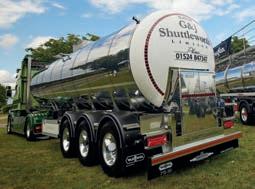
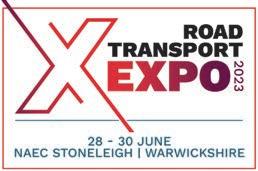
With its ‘all about the truck’ mantra, it combines a vast exhibition of the latest vehicles, equipment and fleet services with a
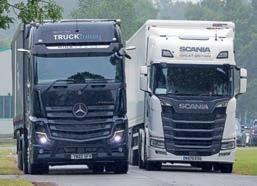
A major emphasis has been placed on the visitor experience and we will be pulling out all the stops to make sure you get the most from your time at the event. There will be tasty food outlets, including an on-site farm shop; plenty of seating areas to relax with colleagues or meet with new customers; easy signage and navigational tools; and a free shuttle bus to transport you from the
“We can’t wait to welcome visitors to RTX this summer,” said Vic Bunby, divisional director at MT’s publisher, DVV Media International. “With more exhibitors and an enhanced visitor experience, we believe the event provides an ideal platform for fleet operators to explore the latest technology, while networking with industry peers. We do hope to see you all there this June!”
RTX takes place from 28 to 30 June at NAEC Stoneleigh, Warwickshire.
Register for your free place at roadtransportexpo.co.uk

Throughout the show, RTX will be running drop-in sessions on its Knowledge Zone stage. These will be covering a range of topical subjects, from road safety regulations through to fleet decarbonisation and key industry challenges.
Day 1: Wednesday 28 June
In the morning, you can participate in a series of Transport Compliance Briefings, brought to you by Logistics UK. Sessions explore key compliance regulations, including the Direct Vision Standard, Clean Air Zone and Zero Emission Zone updates, and a spotlight on industry skills and training.
In the afternoon, you can attend an engaging session hosted by SMUK, ‘Gearing up for Change’, which will take a look at how the latest technology can keep your fleet compliant with tightening safety legislation.
Day 2: Thursday 29 June
The morning’s opening session will focus on industry’s journey towards zero carbon, from the position today to government’s ambitious targets to phase out fossil fuels.
You will hear from well-known HGV operators about their experiences with the latest alternative fuels and cleaner ways to deliver goods.
There will be an opportunity to find out more about charging and refuelling infrastructure from a panel of experts.
You will also be able to join in the discussion about future truck technology, from fuels to servicing requirements, during our exciting ‘Big Debate’ session after lunch with major truck manufacturers, hosted by Freight Carbon Zero.
Day 3: Friday 30 June
The Knowledge Zone will commence with the presentation of brand-new industry research, which will drill down into the key challenges facing operators for the year ahead. Drop in and listen to the lively on-stage debate with panellists drawn from Asset Alliance, Motor Transport and the Road Haulage Association. Connected vehicle technology is also on the agenda, as we explore the role it can play in fleet efficiency, safety and compliance.
Risk management, including insurance know-how, training and safety culture is an essential topic for fleet managers.
Advancements in diesel technology will be the talking point for Will Shiers, editor of Commercial Motor and his team of experts.
Vehicle safety gear and fleet compliance platforms;
Training and recruitment services;
Legal, insurance and compliance teams;
Wheels and tyres;
Refuelling and charging infrastructure;
Workshop and maintenance equipment;
Trade associations;
And much more!
Make sure you check out roadtransportexpo.co.uk as new exhibitors are being added all the time.

motortransport.co.uk Road Transport Expo 10 MotorTransport 20.3.23
If you work in road transport – or if you just love trucks – RTX is the place to be this summer
IN THE KNOW

As the EC increases pressure for freight decarbonisation,
fuels
Renewables show the way to zero emissions
The European Commission’s newly published proposals to tighten emissions standards for heavy-duty vehicles (HDVs) over the next two decades will put further pressure on the industry to accelerate change. This would mean reversing the decade-long trend of rising greenhouse gas emissions across the European HDV sector (with the exception of the pandemic year, 2020), driven mainly by the growth in road transport demand – a trend not expected to go into reverse any time soon.
The vast majority of HDVs in the EU fleet (99%) still run on internal combustion engines, fuelled largely by imported fossil fuels (mostly diesel). This, of course, adds to the EU’s dependency on volatile energy markets.
Unambitious
The sector has successfully driven down locally polluting emissions through the progressive tightening of the Euro emissions standards, but CO2 has been another story.
Environmental groups criticised the EC-proposed targets (for certified CO2 emissions reduction targets for HDVs of 45% from 2030, 65% from 2035 and 90% from 2040), saying that they are not ambitious enough and will mean that we won’t see the rapid electrification of trucks that we have seen for cars.
Currently, though, renewable low-carbon fuels contribute a third of all carbon savings from road transport. While electrification (or variations of it) may well be the end game for most trucks as well
as cars, vans and buses, in the short- and medium-term vital savings can be made from the adoption of low-carbon fuels in the freight sector.
The UK’s 2021 Transport Decarbonisation Plan recognised the need to maximise the benefits of low-carbon fuels, setting out commitments to develop a strategy for them to 2050 and to send a clear signal to stakeholders about the government’s vision for the sector.
To help inform the government’s strategy preparations, Zemo recently published the results of a wide-ranging stakeholder consultation held last year, involving 119 organisations from 13 different stakeholder groups. In total, 28 workshops were held, covering seven different themes. This stakeholder engagement process showed a clear desire to
■ For all the latest news and information dedicated to the decarbonisation of the commercial vehicle and road freight sector, check out our sister website FreightCarbonZero.com


increase the use of decarbonised fuels to ensure that carbon savings are achieved as early as possible.
Uncertainty
The Renewable Transport Fuel Obligation (RTFO) is currently the key measure to incentivise the supply of low-carbon fuels. The RTFO has set a target to supply 14.6% renewable fuel in transport by 2032.
Stakeholders said that both liquid and gaseous low-carbon fuels in higher blends than are incentivised through the RTFO can play a key role in decarbonising road transport (as well as aviation and shipping) but they added that more certainty is needed about the government’s plans to enable industry and investors to fully seize the opportunity.
They expect a variety of liquid and gaseous low-carbon fuels to play a role in road transport decarbonisation as well as for non-road mobile machinery (NRMM), rail, maritime and aviation over the next three decades.
Stakeholders said that finding agreement around common standards for ensuring low-carbon fuels’ sustainability performance is vital, as is clarifying other risks and opportunities. Clear comparisons of the life-cycle emissions of competing fuel options are needed to ensure we make the right policy choices.
Participants emphasised that early reductions in greenhouse gas emissions achieved through the introduction of low-carbon fuels will help to pave the way to zero-emissions transport in the longer term, and help to ensure that we are able to meet our ultimate net-zero target.
A common theme arising from many workshops was that ramping up the adoption of low-carbon fuels for road transport would be a ‘no regrets’ opportunity; should the transition to electrification proceed more slowly than expected, lowcarbon fuels can provide an important insurance policy to enable early and ongoing greenhouse gas emissions reductions.
No excuses
Zemo, of course, continues to push for zero tailpipe emissions across all sectors, so using a lowcarbon, renewable fuel should certainly not be used as an excuse to delay the adoption of zeroemissions vehicles where it already makes economic and operational sense to do so. Conversely, the promise of future zero emissions should not provide an excuse to delay decarbonisation through the use of lowcarbon fuels while we transition.
■ Andy Eastlake, CEO, Zemo Partnership
motortransport.co.uk Focus: decarbonisation 12 MotorTransport 20.3.23
we must not forget renewable







































Dull Budget points to stability
Steve Hobson Editor Motor Transport
As I sit and write this, the Chancellor has just sat down after delivering his first proper Budget since taking over at No 11 in October last year. To survive six months in the job is quite an achievement given the political upheavals last year, which saw no fewer than three Prime Ministers and Chancellors take the UK economic reins.
If the UK transport industry wanted one thing from Jeremy Hunt MP last week (apart from the welcome continued freeze on fuel duty) it was stability and a lack of surprises, something which he certainly achieved. Someone at the Treasury seemed to have told the media 90% of what would be announced in advance, just to make absolutely certain no one would be taken aback by his speech.
Running any business is hard enough when the economic landscape keeps changing but transport, with its chunky capital investment in expensive trucks and trailers that take at least three years to make a return, and long lead times to produce
the skilled drivers needed to drive them, needs certainty more than most.
It is also an industry whose fortunes are closely aligned with the UK economy –growth usually means people buying more stuff and, until a 3D printer is invented that can produce everything from food to motor cars, that means more demand for transport.
So perhaps the best news from last week was that the OBR has revised up its forecasts for the UK economy, predicting only a 0.2% decline in output in 2023 and a return to growth of up to 2.5% in the next five years. This should give operators and truck manufacturers the confidence to press the button to order and build the new vehicles we need to reverse the increasing age of the UK truck parc.
New trucks are cleaner, greener and safer than old models and regular renewal avoids the problems of a bubble of older vehicles that are worth so little operators struggle to fund their replacements as prices continue to rise.
Creating a job that drivers want to do
Readers of Motor Transport know the critical role that HGV drivers play to keep our country moving. There is – or at least was – growing public recognition of this too.
At the height of the driver shortage crisis – brought on by pandemic lockdowns, the end of the Brexit transition period and changes to tax rules – HGV driver wages increased and financial incentives became commonplace. In the summer of 2021, for example, Marks & Spencer offered a £2,000 signing-on bonus and in early 2022 Logistics UK reported salaries up 12%.
Around the same time, the UK government announced 33 actions to deal with the shortage. In the short term, this involved fixed-term visas for foreign drivers and extended cabotage rights. Longer term, the focus was on training new drivers and retaining the existing workforce.
While this crisis was brought on by a very specific ‘perfect storm’, its origins date back at least to the global financial crisis. In other words, recruitment and retention of HGV drivers isn’t a new challenge. And while the crisis may have abated (it is now referred to as ‘severe’ instead), and salaries have stabilised, the 2023 worker unrest experienced across the country may rear its head in road haulage.
It is useful to know the total numbers of workers in the sector, but more valuable data would tell us who is entering and leaving the sector, and why.
The available data sketches a pretty clear picture; HGV drivers in the UK are predominantly male – by some counts,
98% of HGV drivers are men. It is also a predominantly white occupation (96%), and dependent on an older workforce than the national average (60% aged 46 or over).
But beyond such statistics, very little is known about the experiences of HGV drivers – what routes and jobs are preferred and which are avoided where possible, what jobs former HGV drivers leave the sector for, and how easy it is to balance HGV driving with home responsibilities. Without this understanding, it is impossible to create jobs that HGV drivers want to do.
Research shows that low job satisfaction affects a variety of issues, including:
Correlation with low rates of driver retention, and high rates of workers moving between employers;
Links to mental health conditions including depression and anxiety;

Associations with physical health conditions.
Our project – Trucking Lives – will spend the next three years tracking UK HGV driver experiences. The first step is to run a survey of current and former drivers to gauge levels of job satisfaction, compatibility with life outside of work, and diverse worker experiences.
This survey is now live, so go to www.truckinglives.co.uk if you would like to support our work or hear more.
Got something to say?
If you would like to contribute to MT’s Viewpoint, email steve.hobson@roadtransport.com
The newspaper for transport operators
To contact us:
Tel: 020 8912 +4 digits or email: name.surname@roadtransport.com
Editor Steve Hobson 2161
Head of content Tim Wallace 2158
Events and projects editor Hayley Tayler 2165

Group production manager Isabel Burton
Senior display sales executive Barnaby Goodman-Smith 2128
Event sales Tim George 0755 7677758
Classified and recruitment advertising rtmclassified@roadtransport.com
Sales director Emma Rowland 07780 604075
Divisional director Vic Bunby 2121
MT Awards Katy Moyle 2152
Managing director Andy Salter 2171

Editorial office Road Transport Media, First Floor, Chancery House, St Nicholas Way, Sutton, Surrey SM1 1JB 020 8912 2170
Free copies MT is available free to specified licensed operators under the publisher’s terms of control. For details, email mtsccqueries@roadtransport.com, or call 01772 426705
Subscriptions
RoadTransport@abacusemedia.zendesk.com 020 8955 7034


Motor Transport Subscriptions, Abacus, 107-111 Fleet Street, London EC4A 2AB
Rates UK £156/year. Cheques made payable to Motor Transport. Apply online at mtssubs.com
Registered at the Post Office as a newspaper
Published by DVV Media International Ltd © 2023 DVV Media International Ltd ISSN 0027-206 X


motortransport.co.uk Viewpoint 14 MotorTransport 20.3.23
Debbie
Hopkins Associate professor in human geography, University of Oxford



The eyes have it
Enforcement only began in March 2021, but can the Direct Vision Standard already be described as a success? Chris
One year after enforcement of the Direct Vision Standard (DVS) began, TfL was unequivocal in its belief of the scheme’s success: “Our world-first Direct Vision Standard has helped to dramatically improve the safety of lorries and save lives,” said Christine Calderto, director of transport strategy and policy.
So, how dramatic has the improvement been and is it still too soon to draw any conclusions about the role of the DVS in achieving this?
According to TfL, there were 17 serious injuries involving HGVs in 2021, down from 48 in 2017.
There were 11 fatal collisions involving HGVs and people walking or cycling; of these, six occurred where vision was cited as a contributing factor. TfL says this figure of six compares to eight in 2020 and nine in 2019.
In addition, of those six, four involved lorries that were rated zero under the DVS – ie the poorest direct vision for the driver from the cab (see box below) – which TfL says “demonstrates the value of direct vision over other safe system equipment.”
However, it is difficult to calculate how Covid has skewed the figures, if at all.
Emily Hardy, UK marketing manager at Brigade Electronics, thinks it has, but the impact is not yet obvious. “The DVS was implemented during the pandemic when traffic and pedestrian habits were altered, so it is difficult to obtain a clear picture,” she says.
VISION OF THE FUTURE
Tindall reports
ON YOUR BIKE: The popularity of cycling in London has increased significantly since the pandemic
“We saw a huge increase in cyclists and pedestrians on the road during this time and so in real terms rates have fallen.
“Serious injuries have also reduced dramatically. Ultimately the number of fatalities ‘where vision was cited as a contributing factor’ has reduced, which would indicate the scheme is working and that enforcement of direct vision and additional safety devices has made London streets safer for all.”
Industry assessment
The industry’s main trade associations were critical of the DVS in the run-up to permits being made available in 2019.
At the time, Logistics UK’s argument was that operators were already fully committed to improving road safety and so other strategies would deliver “a far greater outcome”.
The RHA pointed out that haulage needed coherent, consistent regulation, rather than “a patchwork of locally devised standards and permit systems which cause concern and confusion”.
That being so, both groups are curiously quiet in their thoughts about the DVS today. Logistics UK did not respond to requests for a comment and Chris Ashley, RHA policy lead, environment and vehicles, just says: “Road safety is everyone’s responsibility and we’re committed to promoting the highest safety standards in
Last month, TfL said it was consulting on plans to tighten up the DVS in 2024, in order to take into account the way technology has developed.
Currently, the minimum DVS rating for HGVs entering and operating in Greater London is one star. A vehicle can have a rating of zero stars – the lowest rating, with poor direct vision – right up to five stars and if your HGV is rated one to five stars, you can apply for a permit without the need to provide any additional evidence.
However, if your HGV is rated zero stars, the requirement is that you make your vehicle safer by fitting it with a “safe system”. These include mirrors, sensors and cameras designed to reduce the risks that trucks present to pedestrians and cyclists.
From October 2024, TfL wants to increase the minimum DVS rating from one to three stars and vehicles that are two stars or under will have to fit its “progressive” safe system, which will take into account new and emerging technology or safety equipment that was not available during the design of the current safe system.
TfL says moving to the new progressive system is “vital” to the Mayor’s efforts to meet its Vision Zero goal, an ambitious target that equates to eliminating all deaths and serious injuries from London’s transport network by 2041.

It is estimated that the new safety requirements will be applied to around 165,000 vehicles – 90% of the existing fleet operating in the capital.
The changes being consulted on include: updating guidance on the use of mirrors and camera monitoring systems (CMS); a requirement that CMS is fitted on vehicles to eliminate blind spots along the passenger side; the installation of sensors that detect vulnerable road users down the passenger side; the fitting of “moving off information systems” to the front of HGVs; and the fitting of audio warnings to all vehicles.
“Every death and serious injury on our roads is a tragedy and it’s clear that there is still more work to do, which is why TfL is now asking Londoners to have their say on the next phase of plans that would strengthen HGV safety measures even further,” says Will Norman, London’s walking and cycling commissioner.
TfL‘s spokeswoman adds: “DVS was always designed to be a progressive scheme and plans for future reviews of the star-rating threshold and the safe system have been made clear since the initial consultation. This was to ensure that TfL can continue to drive safety improvements while providing the industry with a pathway to meet these.”
motortransport.co.uk Safety 16 MotorTransport 20.3.23
Photo: British Cycling / Luke Webber
➜ 18




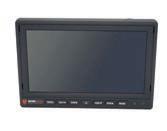




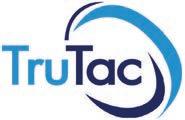

our industry. We will work with TfL on practical measures to improve road safety, such as the progressive safe system proposed from 2024.”
Ironically, the only detectable whiff of dissent was at British Cycling (BC), the governing body for cycling sport in Britain. Nick Chamberlain, BC policy manager, says: “Is DVS the ultimate solution to road danger reduction? Of course not, it is one of a package of measures that is needed to impact the horror of road deaths and serious injury.”
Chamberlain goes on: “I am comfortable that the statistics issued by TfL indicate a strong positive correlation between the enforcement of DVS and reduced danger on London’s roads, especially when serious injury as well as fatalities are considered.
“The Mayor’s Vision Zero strategy for London is based on globally recognised science and is a clear evidencebased package of measures that will, if fully enacted, save lives and change London’s roads and streets for the better.
“The needs of the haulage industry remain vitally important, but I am satisfied that the industry, based on talking to industry leaders and BC members who work in haulage, is being robustly engaged in the work and that their voice is heard and has influence on the decisions being made.”

Multiple initiatives
Inspector Rik Wenham is the Metropolitan Police’s lead officer for commercial vehicles in the capital and he says that “without a doubt”, the DVS has contributed towards reducing fatalities and serious injuries involving HGVs. However, he also says it is just one piece in a jigsaw and other initiatives are helping to reduce casualties too.
“In addition to the Direct Vision Standard, the introduction of low-entry cabs has had a significant impact,” he says. “While I am aware that some drivers did not like the Mercedes and Dennis Eagle cabs, advanced low-entry cabs from Scania and Volvo retain that ‘lorry’ feel, but put the driver that much lower and on the level of a cyclist or pedestrian.
“Driver training that companies are committed to prior to allowing contracts in the London area is also pivotal. Safer urban driving DCPC and putting a driver on a bike really is impactive and the immersive DCPC that Thames Tideway provides to all drivers on their contracts really does have an effect.
DISTINGUISHING A POST FROM A PERSON
SAFETY FEATURES:
Mirrors and passenger-side sensors are elements of the safe system, which is mandatory on zero-star rated HGVs operating in London

One of the proposed changes to the DVS to be introduced in 2024 is that sensors fitted down the passenger side of an HGV must not be activated by roadside furniture or stationary vehicles.
Explaining this curious requirement, Richard Lane, commercial director at VisionTrack, says: “Traditional proximity sensors warn of a nearby road user, but often an alert can be triggered by railings or street furniture such as lampposts, bollards, road signs and bins.
“The risk here is that a driver becomes complacent and takes less notice of an alarm because it is often reacting to objects in close proximity, which can naturally occur, particularly in urban environments, but present no risk.
“To overcome this challenge, VisionTrack has developed an AI-powered side camera that can detect vulnerable road users (VRUs) such as pedestrians, cyclists, motorcyclists and people on scooters, while disregarding street furniture.
“Footage is automatically displayed on an in-cab monitor, and even supplemented with an audible, spoken warning with the precise location of nearby VRUs in relation to the vehicle. This keeps the driver more engaged by providing highly accurate and useful information.”
However, Lane adds that technology alone will not eliminate all vision-related incidents, something for TfL to think about as it strives for its Vision Zero goal.
“Road transport operators also need to take an active role in monitoring their fleet safety performance and identifying where driver risk exists,” he says. “It is only possible to achieve this level of visibility by adopting some form of connected camera solution, which enables them to analyse collisions, near misses and other driving events and then take steps to address any health and safety issues.”
“Being a C+E licence holder and having done both DCPC modules myself, they really have an impact and just prompt that moment of additional thought or that extra mirror check.”
And then there are the measures being taken by the industry, as well as ongoing research and development, regardless of the strict standards that exist.
“Everything from the positioning of mirrors and monitors to the shape of panels is considered,” Wenham says. “The commercial vehicle industry is as regulated as rail and aviation, the drivers are professionals and have to comply with additional training and medicals.
“It is testament to the professionals within the industry that fatalities have reduced. The London road infrastructure has changed significantly with the inclusion of cycle super highways and smart roadways with joint right of way – and there’s been more than a 200% increase in cycling since the pandemic. I’d say we are on track.”
What about the buses?
It was put to TfL that buses also kill and injure vulnerable road users and yet they already have excellent direct vision.
A TfL spokeswoman says it is determined to ensure the whole transport network is safer as part of its broader Vision Zero goal. “There are fewer than three injuries for every million journeys on London’s buses,” she says. “TfL’s bus safety programme continuously drives major safety improvements across its network and TfL funds specific interventions to reduce collisions and improve existing safety processes and data collection.”
The spokeswoman confirms that a cost/benefit analysis was conducted into the DVS and this showed “a strong case for further investment in the scheme”.
“A combined total of 14 fatal collisions occurred between 2020 and 2021 where vision was a factor, which is tragic and unacceptable,” she adds. “It also comes at an economic cost, which the DfT puts at £29.68m.” ■
motortransport.co.uk Safety 18 MotorTransport 20.3.23

































































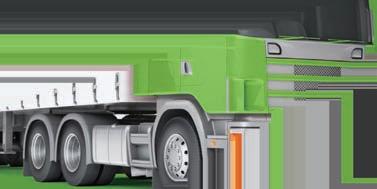

No time to waste
RCVs may seem a natural fit for electric power, but how simple is it to make the switch from diesel?
 John Kendall gets the lowdown from industry experts
John Kendall gets the lowdown from industry experts
Who will go first? By that we mean which transport sector is likely to be the early adopter of electric power? With battery technology improving fairly rapidly, it becomes more feasible for sectors to make the switch, when the two “Cs” of cost and convenience eventually align.
On the face of it, the waste and recycling sector looks as though it could be a likely candidate here. Vehicles tend not to stray too far from base each day and return to the depot each night. Overnight charging at the depot looks as though it could satisfy many fleets, without the need to recharge during the day. Is that the whole story though?
Veolia will celebrate 30 years of involvement in waste collection services this year. The company is already operating fleets of electric vehicles involved in waste and recycling collection, following the introduction of electric refuse collection vehicles (RCVs) and others over the past year for Westminster City Council and Kingston Council.
“Over three-quarters of local authorities have declared climate emergencies and many are targeting net zero by 2030, so there is real impetus to transition to zero emission operations”, Gary Clark, Veolia’s UK fleet director told Motor Transport. “By 2030, we expect at least 10% of our fleet to be powered by electricity or alternative zero emission technologies. In 2030, we will also stop buying fossil-fuel-powered RCVs and by 2040 our fleet will be fully decarbonised.”
That’s a clear commitment from one of the largest suppliers of waste services in the UK. How does the
picture look from a vehicle manufacturer’s perspective?
“We are seeing strong demand from virtually all our customers,” says Ross Paterson, head of special trucks at Mercedes-Benz Trucks UK. “They all want to do the right thing for the right reasons, but of course the vehicle itself is only part of the jigsaw. The charging infrastructure is obviously critical for the success of these vehicles and there’s lots of interest out there and lots of people talking.
“We are actively engaging with them, offering a consultation not only about the vehicle itself but also the charging infrastructure and route analysis, to see how it may or may not work for them. But one of the overriding things that I’m hearing at the moment is virtually all customers that we’re talking to are looking at e-trucks, particularly RCVs, but they’re asking the question or at least they’re of the mindset, ‘will it do the same as my current diesel truck does?’ So, will it go out in the morn-
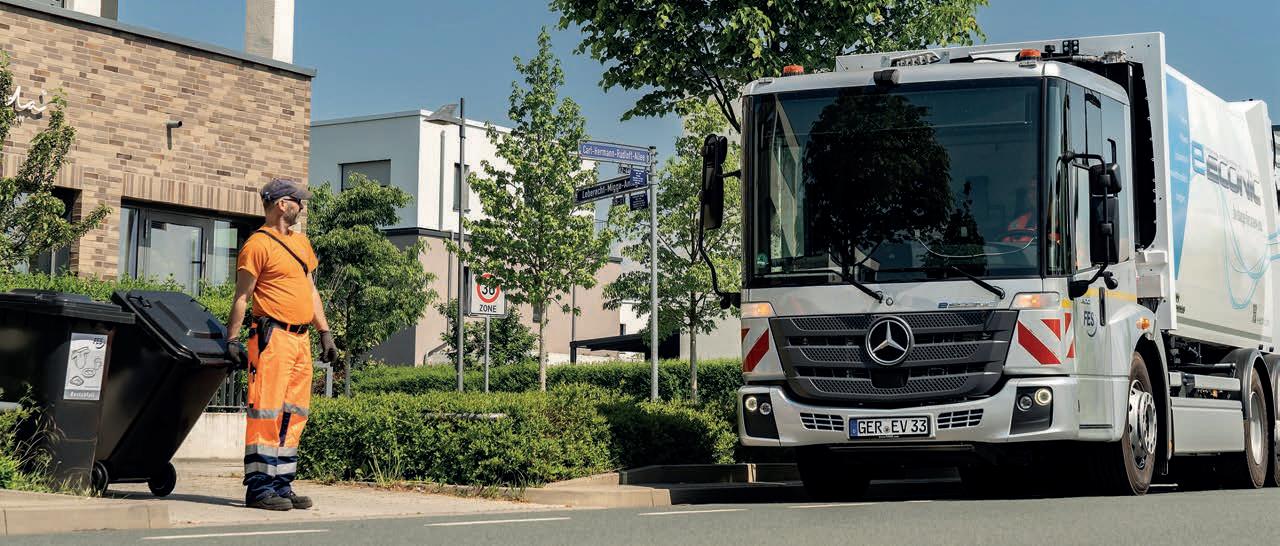
Waste and recycling 20 MotorTransport 20.3.23
The Mercedes-Benz e-Econic has an e-PTO fitted as standard
ing, do the full rounds, also go and unload somewhere else and get back to base on a single charge?”
Amy Carter, EV operations manager at DAF Trucks UK, points to some of the engineering challenges that electric RCVs present. “It’s a complicated build, of course, as it has always been with a PTO and significant power required for the compactors etc, so absolutely it does create some engineering challenges around electrification, particularly around range,” she says. “Having said that, I think local councils are very committed to reducing noise pollution in urban areas for example, as well as moving towards a carbon-zero future, so there is definitely an appetite for the vehicles.”
Gradual transition
Ulemco is a technology provider, offering a dual-fuel system mixing hydrogen with diesel and helping to reduce emissions from diesel engines. MD Amanda Lyne expects we will see a gradual transition to electric and zero-carbon vehicles over the next five to 10
DENNIS EAGLE SOARS AHEAD WITH EVS
Dennis Eagle was an early adopter of battery electric power for its RCVs and has won some significant orders as a result. It launched its eCollect early in 2021 – there are now over 100 in operation and the orderbook continues to grow.

Some operators, such as Nottingham City Council, already had smaller EVs so they had charging infrastructure in place and were comfortable with this new technology. “They placed early orders and were able to hit the ground running,” the company says. “For others, there was an initial lag period. They were just as enthusiastic after trialling the vehicle but had to start from scratch with the infrastructure.”
The eCollect runs entirely on electrical power from the vehicle battery packs. On a full charge, they work all day – typically collecting over 20 tonnes and travelling 60 to 80 miles – during which the battery charge falls from 100% to between 20% and 40%. Everything, from the vehicle’s drive system to the compactor, bin lifts and air conditioning, runs on electricity from the battery packs.

Westminster has recently ordered 40 eCollects, the delivery of which will coincide with the opening of a new depot where they will be charged by power from the South East London Combined Heat and Power facility (SELCHP). This plant generates power by
incinerating waste – some of which will be transported there from Westminster by the eCollects.
“It’s a beautiful example of the circular economy and local authorities are increasingly focused on sustainability,” says Dennis Eagle. “Other operators are planning a slower, more measured transition and may still be buying new diesel RCVs up to the deadline.”


MotorTransport 21 motortransport.co.uk 20.3.23
22
➜
Veolia operates a fleet of Electra RCVs in the City of London
Photo: Daimler Truck AG
HYDROGEN: COMBUSTION OR FUEL-CELL?
Electricity can be stored in other ways than by using heavy and expensive batteries. One such method is to use a fuel cell, which can either generate electricity from hydrogen or produce hydrogen from electricity. The problem is that it is not particularly efficient at the moment and like batteries, fuel cells are expensive. The advantage for long-distance vehicles in particular is that the technology offers rapid refuelling in a similar time to that needed to fill a diesel tank.
RCVs are fairly power hungry, so could hydrogen fuel cells be an attractive alternative? Ulemco is looking at another option, which could yet become an alternative for commercial vehicles. Hydrogen is a combustible fuel, but since it’s not a hydrocarbon fuel, it can be zero-carbon if produced from renewable sources.
“There is significant interest in hydrogen-fuelled vehicles, as these offer solutions to the concerns such as better productivity (fast refuelling), and a more flexible match to existing operational processes, rather than specifically for either technology”, says Amanda Lyne, MD of Ulemco. “We think this is because many vehicle owners are not convinced that battery solutions alone will meet their needs.
“Customers ask us about all hydrogen options, including our dual-fuel approach, which they see as a practical option in the short to medium term for delivering carbon savings. We tell them that there are a few examples of fuel cell versions that can be trialled today, but they are quite expensive.”
“I think there’s a lot of interest in hydrogen per se, but fuel cells are a challenge because they are such a complex build in the first place and because they are technically a hybrid,” says Amy Carter, EV operations manager at DAF Trucks UK. “As well as having the fuel cell and hydrogen tanks, you also need a storage battery. On its own it isn’t adequate. So, for a vehicle that uses a lot of power, like a bin lorry for example, that’s going to need a fairly significant energy storage facility as well as a relatively significant fuel cell, and that creates a challenge for manufacturers.”
years. “Some cities and municipalities will move faster than others, depending on their specific circumstances and access to finance,” she suggests. “It is still not clear that the versions seen today will technically deliver everything that is required of an RCV fleet – including breadth of duty cycle coverage (can they cover all the routes and duties that are needed in all locations and applications?), reliability, life-time durability and overall affordability.”
Lyne highlights the massive investment that will be needed in charging infrastructure too, a factor that is likely to be receiving close scrutiny from cash-strapped local authorities.
“The product is here now, with its breadth of capabilities increasing at a fast pace, meaning more and more operations can be accommodated,” says Martin Tomlinson, head of media and truck demonstration at Volvo Trucks UK and Ireland. “The adoption rate will be dependent on many factors including energy pricing (fossil and electric), societal demand, national and local legislation as well as infrastructure development, to mention some of the key influencing factors,” he argues.
Meeting power demands
RCVs tend to be power hungry because of the energy needed by the compactor, which compresses the waste to minimise the number of times the vehicle has to tip. Operators are used to completing their collection rounds, unloading when necessary, then returning to the depot. Will that still be possible without having to recharge or rely on an auxiliary power system to replace the PTO to drive the compactor?
“All of Veolia’s electric refuse collection vehicles have a PTO that is powered solely by electricity,” explains Clark. “They have enough power to fulfil a standard refuse round. Powering ancillaries directly from electricity leads to increased efficiency gains.” This is because the energy does not need to be converted; instead it comes straight from the battery as electricity to drive the compactor.

“The e-Econic has got an e-PTO as standard,” says Paterson. “The bodywork that would be fitted on an e-Econic will run off the chassis’ batteries. We’re not looking at external fossil fuel-driven powerplants on the body or anything like that.
“We predict at the moment that the power that’s available will be suitable for at least 90% of the current refuse
collection vehicles that are in operation across the country. There will always be the exceptions, but again I come back to our consultation.
“How many bins are you lifting every day? What’s the average weight of the bins? What’s the mileage of the vehicle? Where do you actually empty the RCV? How far do you have to drive to empty it? All are hugely critical factors in the test to ensure the vehicle is specified properly for the customer.”
DAF offers its electric 26-tonne GVW FAN chassis with up to five battery packs, which would provide a total of 525kWh of power capacity on the truck. “When you consider that the average bin round for a council is less than 50 miles, we’ve got over 400km to 500km range on that truck”, says Carter. “There should be plenty of power to operate that compactor through the entire route. It’s a challenge, of course, because it adds extra weight to the chassis.”
Tomlinson has a similar view. “The devil is in the detail,” he says. “Some routes can be accommodated by BEV, some cannot at present. We will work with customers to achieve their goals; however, our preference is to power the superstructure/onboard equipment via batteries. The feasibility of our chassis to complete a particular route is completed using a piece of analysis software, which removes the guesswork from the process.”
Countdown to zero carbon
There are still 11 years to go before all new 26-tonne GVW chassis will need to be fitted with a drivetrain that does not produce carbon emissions. A lot will happen in that time. This will most likely include battery prices reducing further, an electrical infrastructure that is better suited to vehicle charging and more clarity on the role that hydrogen will play as a potential energy medium.
■ To find out more about the latest RCV technology, why not register for your free ticket at this year’s Road Transport Expo –roadtransportexpo.co.uk – and come and talk to key manufacturers about your business needs
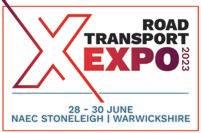
The speed with which change will take place will be determined partly by the running costs of BEVs compared with diesel-powered vehicles. If battery prices continue to fall it could hasten the point at which the whole-life costs of a BEV fall below the whole-life costs of an internal combustion engine vehicle. “A diesel RCV consumes an enormous amount of energy and doesn’t travel very far every day,” Paterson points out. “So many variables play a part in that, of course, but from my perspective it is the ideal scenario for the total cost to be comparable with a diesel.”
For Lyne, hydrogen combustion looks like an attractive option. “When comparing with diesel, from a capital cost perspective, we believe that hydrogen combustion will have a greater chance of being cost comparable than fuel cell or electric,” she says.
“When we consider the running cost of the vehicle over a five- to 10-year period, that’s when we really start to see that move towards parity,” reckons Carter. “I expect within the next five to six years to see parity with diesels, not just in the municipal sector, but across the board.” ■
motortransport.co.uk Waste and recycling 22 MotorTransport 20.3.23
























Dawsongroup expands into Hull
Dawsongroup truck and trailer has opened a branch in Hull, taking its total number of UK sites to 24.
The independent rental, leasing and contract hire specialist says this latest branch will support operators working in and around the East Coast port. It will operate together with its wellestablished operation in Doncaster and Leeds, to form a Yorkshire and Humber region.
The new site’s truck and trailer operations will be overseen by regional manager Scott Bailey, who has been with the company for 15 years. It will also offer vans and static temperaturecontrol products.
“We have been experiencing a significant increase in numbers of our vehicles going into the Hull area, both as the port gets busier and as our rigids and trailer reefer fleet becomes increasingly popular,” said Bailey. “As a company that prides itself on proven customer service levels, we have made the positive decision to invest in the area with a full branch facility to offer more immediate support to our local customer base. Being located in the area will help strengthen our service offering to operators for years to come.”
The 1-acre site, which will initially open for five days a week, is located off Burma Drive on Marfleet Industrial Estate, close to the A1033 that runs by the main port entrance.
Dawsongroup has a 12,000-strong fleet of ambient and temperaturecontrolled rigids, tractors and trailers, and also offers vans, forklifts, sweepers and temperaturecontrol solutions. It is MT sister publication
Commercial Motor’s current Rental, Leasing and Contact Hire Provider of the Year, having been crowned at last year’s Road Transport Ball.
UK truck sales are bouncing back but are not yet at pre-pandemic levels
Truck market on the up
The UK truck market grew by 9.6% in 2022, according to the latest SMMT HGV registration figures. The recovery from Coronavirus lockdowns and supply chain issues is well under way, with a total UK market size of 40,716 during the year, compared with the 2021 figure of 37,163. However, there’s still a way to go to reach the pre-pandemic level of 48,535 reported in 2019.
Although all weight classes have increased, by far the biggest growth in 2022 has been in sales of 3-axle tractors, up 24.5% compared with the previous year. The overall figure for rigids is almost static, although a 4.4% decline in the 6- to 16-tonne sector was compensated for by an increase in the number of heavier rigids. Looking at the most popular body types, curtainsiders are up noticeably, with smaller increases for tippers and RCVs, while box vans are down slightly.
Turning to the market by brand, DAF Trucks is still the runaway leader, increasing its share by a full percentage point to 32.1% with 13,068 registrations, up from last year’s 11,547. The chase for second place sees Volvo reversing positions
UK MARKET BY SHARE – 6 TONNES AND ABOVE
with Scania, while Mercedes-Benz takes best of the rest. The only one of the Big Seven to lose out is MAN, dropping both volume and share. The rise in market share will cause some celebration in Warwick as both Volvo and Renault Trucks increased year-onyear share by over 18%, although in terms of volume the Swedes are still outselling the French by more than two to one. The remaining member of the top group, Iveco, has increased its numbers and is now just outselling MAN.
Sapphire’s technician shortage solution
Independent HGV maintenance provider Sapphire Vehicle Services is doing its bit to ease the shortage of qualified truck technicians with an innovative training scheme to upskill recruits from the car and van sectors.
Its first batch of six technicians are nearing the end of their conversion course, and the next intake is already being planned.
The first qualification programme began in February,
with the six trainees undertaking six one-week blocks within a oneyear period, while working fulltime in Sapphire’s workshops across a 12-month period before being signed off as qualified HGV technicians.
Sapphire’s group operations manager Dave Williams said: “We’re always on the lookout for competent and experienced truck technicians but there’s a shortage of qualified people, so we decided
to be proactive and train our own. We’re taking car and van technicians who are already level-three qualified, and giving them an intensive, one-year course to equip them with the specialised knowledge and skills to work on heavy vehicles.”
31-year-old Isaac Adusei (pictured), who has eight years’ experience working on cars and vans, is one two trainees based at the Northampton depot.

He said: “I’ve always been interested in developing my skill set and learning more about different vehicle classes. Since joining I’ve already achieved my BPW Axles certification and am keen to carry on my training, even after this course is finished.”
With a head office in Appleby Magna, Derbyshire, Sapphire has 16 workshops across the UK, with responsibility for maintaining 28,000 commercial vehicles. It has recently been awarded ISO9001:2015 accreditation.
Marketplace news 24 MotorTransport 20.3.23
2022 Share (%) 2021 Share (%)Change (%) DAFTrucks13,06832.111,54731.113.2 DennisEagle48152.09492.6-14.1 Fuso2050.53961.1-48.2 Isuzu9702.48622.312.5 Iveco3,3878.33,2308.74.9 MAN3,3248.23,4809.4-4.5 Mercedes-Benz4,78811.84,23711.413.0 RenaultTrucks2,5986.42,1955.918.4 Scania5,65513.95,26614.27.4 Volvo5,90614.55,00013.518.1 Total 40,716 37,163 9.6 HGV REGISTRATIONS BY TYPE 20222021 Change (%) Rigids6.0t-16t7,3347,671-4.4 Rigidsover16t13,96813,5603.0 Allrigids21,30221,2310.3 Tractors2-axle2,2742,1674.9 Tractors3-axle17,14013,76524.5 Alltractors19,41415,93221.9 Total40,71637,1639.6
Photo: Craig Eccleston
GB Fleetcare invests in truck servicing facility at DIRFT
DAF has opened a purpose-built truck servicing facility at the Daventry International Rail Freight Terminal (DIRFT).
The 1.6-acre site – which is located on the A5 Watling Street, within the Golden Triangle of the Rail Freight Terminal, junction 18 of the M1 motorway and M6/A14 interchange – represents a £3.2m investment from GB Fleetcare. This is the contract maintenance company’s third GB DAF location, including service centres in Banbury and Gatwick.
GB Fleetcare is an official DAF Service Partner, and this facility takes the number of DAF dealer locations in the UK to 137.

On the site is a 15,000sq ft workshop with five 28m fully equipped bays. It has been futureproofed, allowing it to accommodate full electric and hydrogen-powered trucks. Equipment includes gas alarms and a roof venting system, pit ventilation, a 400-amp electricity supply and multiple ducts around the site to enable installation of vehicle chargers as required. DAF and TRP parts stock are held on site, and in time it will become both an Approved Tachograph Centre and a DVSA Authorised Testing Facility.
GB Fleetcare MD Paul Grimes said: “It’s been a long journey, but we’re thrilled to be here in what
is the premier location in the UK for large-scale logistics companies. We identified the site in 2016 when Prologis, the owners of DIRFT, revealed plans for growth. We’ve worked extremely hard to build what we believe is the most modern, well-equipped truck servicing facility at the terminal and in precisely the right location. And, we’re just as delighted to be strengthening our relationship with market-leading DAF Trucks. “Together we will bring unrivalled levels of service for DAF and mixed fleet operators.”
Newly appointed service manager Ben Taylor initially heads up a team of six fully trained DAF technicians, but there are plans to increase this number to 21 by the end of the year.
JOST grows service agent network
WG Tankers has been appointed as a service agent for JOST.
Already a JOST customer, WG Tankers supplies pressure discharge and vacuum equipment to the dry bulk industry and will now provide JOST customers with aftermarket care.
Danny Broomfield, MD of JOST GB said: “We’re always looking to grow our network of service agents to ensure we provide JOST customers with the highest standards of coverage and quality.
“WG Tankers’ wealth of experience and high standards will provide JOST customers with the products and service they require to get back on the road.”
Darren Moore, workshop operations general manager at WG Tankers commented: “We’re proud of our operation at our depot in Foston, Derbyshire. WG Tankers offers a unique solution to our customers, providing repair, maintenance and refurbishment of powder tankers.
“We have worked together [with JOST] for many years. Our recent appointment gives customers the best experience, by offering our expertise alongside their products.”
Acquisition by French buyer secures future for Kent-based Mercedes-Benz dealership
SAGA makes first move into UK
Sparshatt Truck and Van, the Mercedes-Benz commercial vehicle dealership group founded in the 1970s, with four sites across Kent, has been acquired by a new owner for an undisclosed sum. The buyer is SAGA MercedesBenz, a leading French dealer group, which is entering the UK market for the first time.

SAGA operates 14 MercedesBenz Truck and 15 Van outlets throughout France, Belgium and Switzerland. It is part of the RCM group, with its headquarters in La Roche-sur-Yon on the Atlantic coast, whose 118 outlets include car makers Toyota, Lexus, Mercedes-Benz and Porsche and boatbuilder Bénéteau. It employs some 2,750 staff.
Sparshatt’s operations will continue under the existing name at its sites in Ashford, Dartford and Tonbridge and its Sittingbourne headquarters, with no interruption
of service to customers or changes to its 270 staff. The previous owners, brothers Paul and Steve Rooney, will continue to manage the Sparshatt operation.
Dealer principal Steve Rooney said: “The vehicle and transport industries are going through a period of rapid change, which is only going to accelerate as electrification becomes more mainstream. Joining the SAGA family secures our long-term future and allows us to plan ahead with full confidence.
“It’s a perfect match – both businesses share a strong ethos of always putting the customer first and training and developing staff to fulfil their potential, while between us we can point to a total of 100 years of working with Mercedes-Benz. Local operators can be assured it’s very much business as usual at Sparshatt Truck & Van.”
SAGA Mercedes-Benz Trucks director Philippe Canetti added: “This move into the UK is an important step for us to grow our presence in matured markets across Europe. Sparshatt Truck & Van already follows our philosophy of ‘Respect, Performance and Passion’ and our business cultures align perfectly.
“We each have a fantastic amount of expertise in the Commercial Vehicle sector, and we are excited to be venturing into the UK during this time of transition towards e-mobility and advanced technology. Taking this first step across the Channel with Mercedes-Benz is the start of an exciting adventure for SAGA.”
MotorTransport 25 20.3.23 motortransport.co.uk
A facility fit for the future
Moving to a new site always involves a mixture of nerves and excitement, but excitement seems to be the overarching theme at Rygor Reading’s official opening weekend.
The £2m development was completed in just six months, so it’s been a quick turnaround to move 52 staff into the site at the start of January.
However, the Mercedes-Benz dealer’s latest site is located less than a mile from its former premises, so it’s not been a massive shift for staff or customers to get used to. If anything, the site is more accessible in Worton Grange Industrial Park, just off junction 11 of the M4. Aftersales director Sean Joyce explains: “We’re so close that it hasn’t impacted customers – in fact, it’s even easier to get here.”

It was important for Rygor to stay in Reading. Joyce says: “Our customer base in Reading has always been super loyal. The intention for building this site was to add to that customer base by being a bit more retail friendly.” As well as having an impressive new front-ofhouse, back-of-house operations are already up and running smoothly, and the new space means overall efficiency has improved.
Joyce says the new site was “born out of Mercedes-Benz standards and needing more space for our facility, which has been full for quite a long time”. The 44,000sq ft location has allowed facilities to double in size, giving the truck and van workshops their own dedicated areas.
Extensive facilities
“In terms of the workshop, we’ve doubled the length of the pits and doubled the amount of pits that we’ve got in the truck workshop. There’s an ATF lane, tacho facilities
Rygor’s new facility in Reading boasts a showroom and forecourt, workshops and parts warehouse all under one roof. Trinity Francis digs into the detail
and hard standing areas,” he explains. The van workshop has an MoT lane and Bodyguard and Fastlign system on entry to detect the condition of the vehicle and assess if it requires bodywork repairs or wheel alignment. A blank canvas meant the team purpose-built from scratch shaker plates, brake-rollers, tacho rollers, all to ATF standard. There are also two long truck pits, with the potential to put a truck MoT lane in too. Separating the workshops means HGV and LCV equipment availability is maximised and more vehicles can be repaired at the same time, with room to expand operations still further.

Marketplace feature 26 MotorTransport 20.3.23
EFFICIENCY BY DESIGN: Each area of the new site has been carefully planned in collaboration with staff
Photos: Rygor Commercials
In between the two workshops is a parts warehouse with dedicated counters for truck and van technicians. Parts manager Andy Chaloner says: “It was great to be able to design it and get involved from the start. Part stock availability is pretty significant here now in comparison to the site we had before.” The warehouse has rows of racks as far as the eye can see, as well as a mezzanine floor to spread out onto. There’s also a customer parts desk accessible from the front of the building.
Truck and van customers have separate entrances for the workshops. The truck side is fitted with a shower room in case drivers need to stay for a long period of time or just want to freshen up while they wait. As van customers are more likely to stay and wait for their vehicles, there’s a customer kitchen area and desk space for people to work, which is already getting good use.
Staff facilities have also expanded, including an on-site gym and communal canteen area. Kate RuberryShoemack, head of people and communications explains: “When we build new sites now, we build them as far as possible with wellness areas or quiet areas for staff just to have that moment to breathe.” As the workshop has now been split, it was a priority to create communal spaces for colleagues to catch up.
Keep it clean
Sustainability was a key consideration when designing the site. Where possible, the team is moving towards paperless operations. In the sales suite this means there are screens to show customers the specification of new vehicles and display any necessary amendments to stock orders. For staff, digital notice boards are dotted around communal areas to keep everyone updated. Outside, there are EV fast-chargers for customers’ vans
and trucks to future-proof the site and accommodate their current electrified models.

The new yard is over twice the size of the previous one so there’s plenty of room to move around and ample space to hold and display stock. Joyce says: “We didn’t really have the facilities to display vehicles or demo from Reading before, but being able to add that function will be key for our sales team. To make the site more accessible for commercial customers, we will look to expand on our shift patterns as we go along, offering night shifts and weekends, as we get settled into the site.” ■

MotorTransport 27 motortransport.co.uk 20.3.23










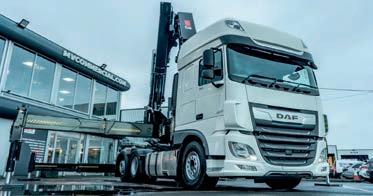
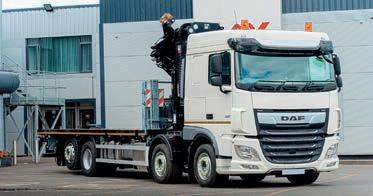

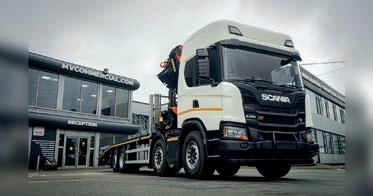
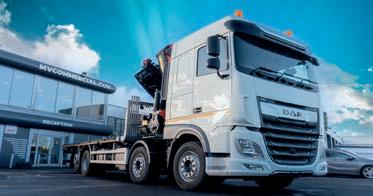







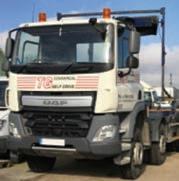
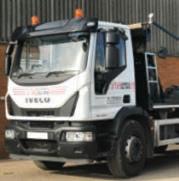
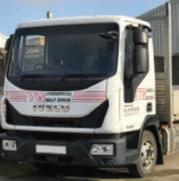
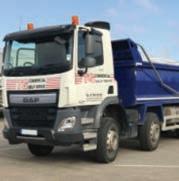
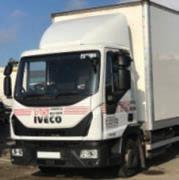

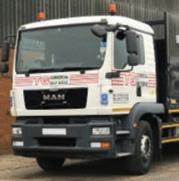
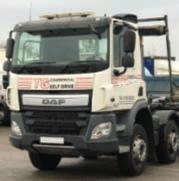


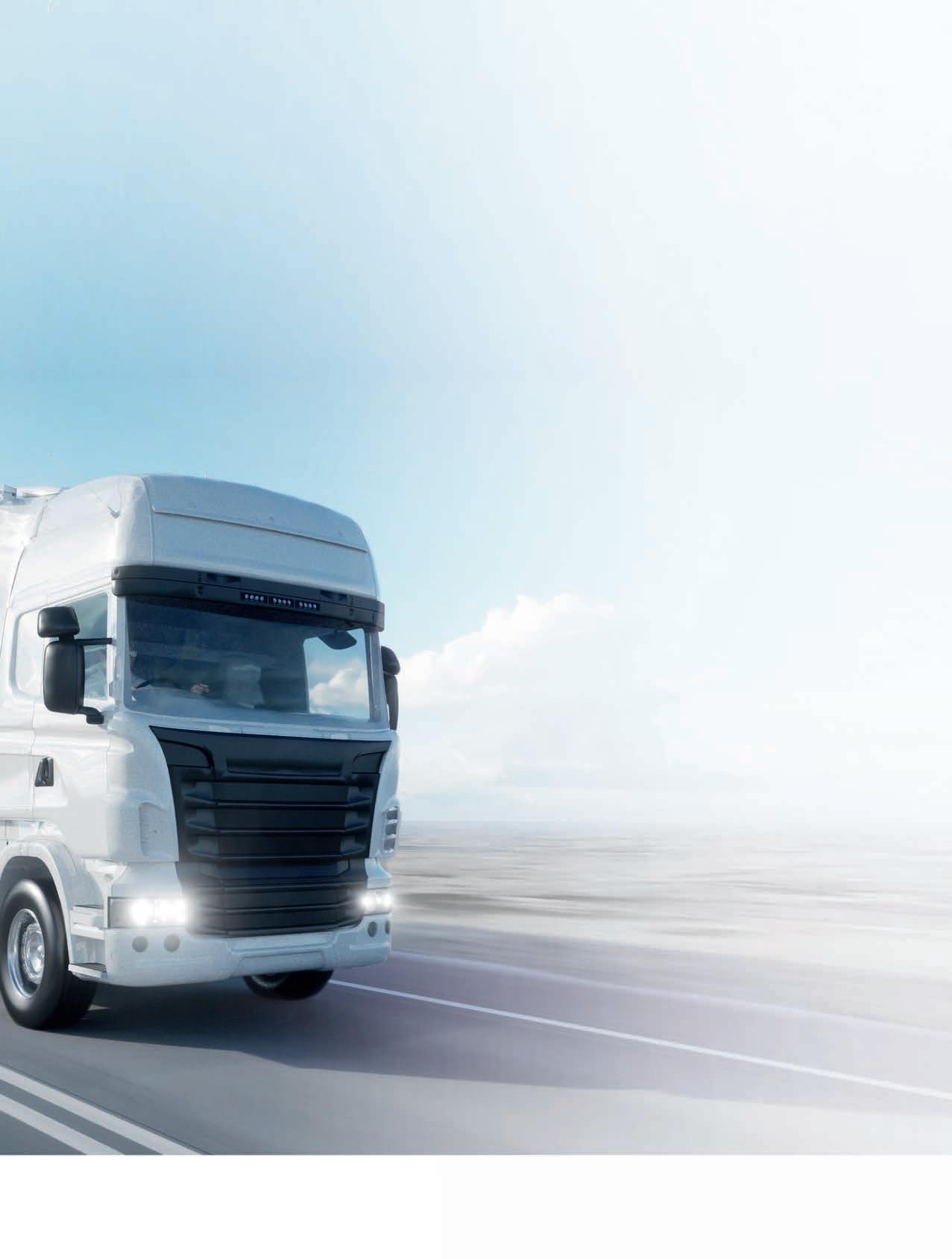



















































































































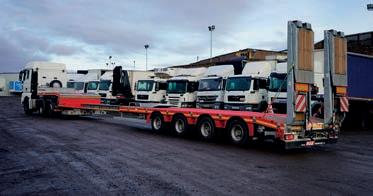
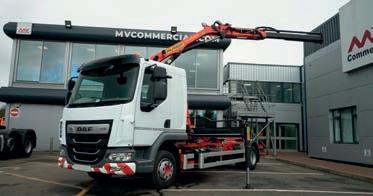
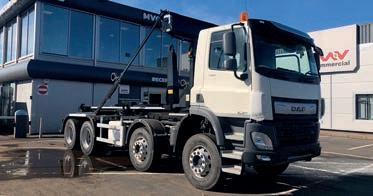







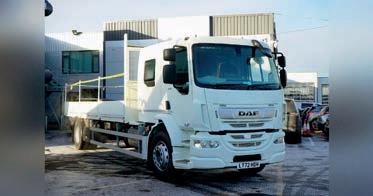
























































































 By Chris Tindall
By Chris Tindall









































































































 John Kendall gets the lowdown from industry experts
John Kendall gets the lowdown from industry experts












































































































































































